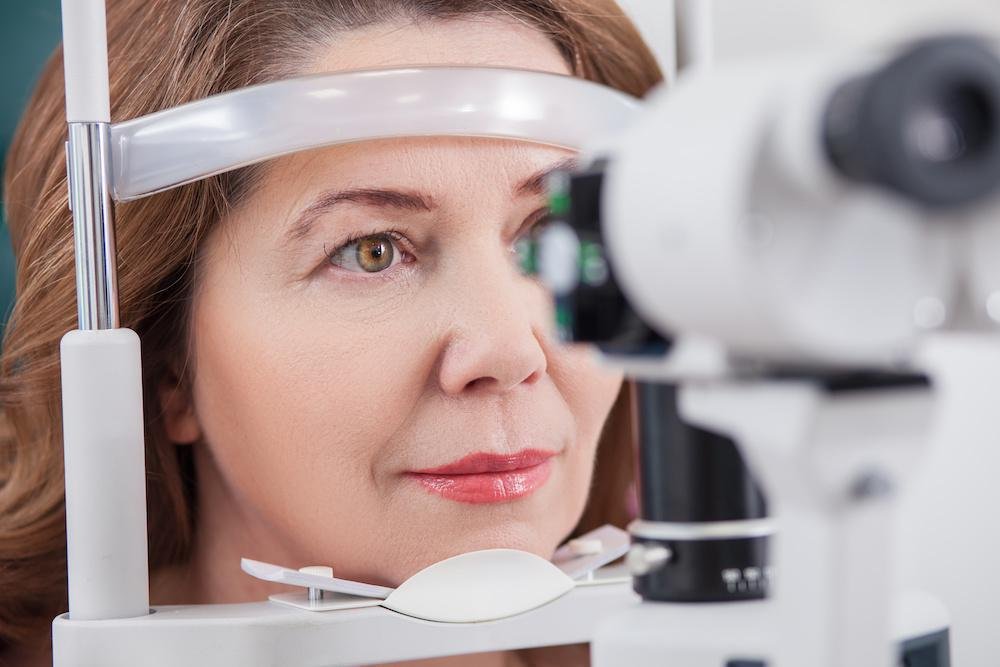Dull pain behind the eyes is a common complaint. It can feel very much like a deep headache and can be very concerning. If you are experiencing this kind of pain, letting your eye doctor know right away will be very important so that he or she can begin their evaluation of the health of your eyes and discover what the source of this pain may be. Some symptoms can be a dull ache, or a sharp and intense pain. Some sufferers describe the feeling that their eye is being stabbed by a sharp object, while others reference the “deep headache” sensation. Symptoms can also include tearing, sensitivity to light, redness, numbness or weakness, double vision, fever, sinus pressure, or pain during eye movement. If these sensations persist, they should never be ignored.
If you are experiencing dull pain behind your eyes, here are some reasons why this may be happening:
- Dry Eye Syndrome. When this syndrome persists, it can cause pain and general headaches, and pressure can build up around and behind your eye. There are many different options for treating dry eye syndrome, but often it just takes an artificial tear product applied several times a day to handle those symptoms.
- Vision Trouble. Near- and far-sightedness can actually cause eye pain, as can astigmatism or the blurring vision that occurs as we age. The pain that comes from vision trouble stems from our eyes and our brain trying to compensate for the issue, and as we squint and work harder on focusing it can cause pain to build up behind the eyes.
- Sinus Issues. Inflammation of the sinuses and sinus infections can cause pain around the eyes due to pressure in the sinus cavities that reside around the eye’s bony orbit.
- Optic Neuritis. An inflammatory condition of the optic nerve, this condition often will cause pain behind the eye or whenever the eye moves.
- Headaches. Migraine sufferers will often complain about a throbbing pain behind one eye, and this condition is triggered many times by stress, smells, flashing lights, and food allergies. There is some evidence that hormones can be a culprit here, as well. Cluster headaches are another type that are extremely painful and can also affect the eyes. They often begin quite suddenly and can re-occur on a cyclical basis during 24 hours.
Seek an Eye Doctor Near You If You’re Experiencing Dull Aches Behind Your Eyes
If your eye pain is severe or persistent, accompanied by a headache or fever, or if you are experiencing extreme light sensitivity or seeing halos, have swelling or sudden changes in your vision, contact us here at Classic Vision Care right away. We are a comprehensive optometry center in Kennesaw, Marietta, and East Cobb, Georgia, and we are committed to providing our patients with a comfortable, fully personalized experience.
Read More About Eye Health Here:
 Is Squinting Bad for Your Eyes? If you find yourself squinting throughout the day in order to see better, it may be a sign you need glasses. Is continuous squinting bad for your eyes? See how you can correct your vision without squinting.
Is Squinting Bad for Your Eyes? If you find yourself squinting throughout the day in order to see better, it may be a sign you need glasses. Is continuous squinting bad for your eyes? See how you can correct your vision without squinting.
 5 Common Signs of Dry Eyes Millions of people suffer from dry eyes in the United States alone. Discover five common symptoms and how to prevent and treat this uncomfortable condition to avoid further complications.
5 Common Signs of Dry Eyes Millions of people suffer from dry eyes in the United States alone. Discover five common symptoms and how to prevent and treat this uncomfortable condition to avoid further complications.  Are Glasses Better than Contacts? Trying to decide between wearing eyeglasses or contact lenses? Consider all the factors, including comfort, ease, and appearance. We’ve compiled a list of pros and cons to help you see your way through this significant decision.
Are Glasses Better than Contacts? Trying to decide between wearing eyeglasses or contact lenses? Consider all the factors, including comfort, ease, and appearance. We’ve compiled a list of pros and cons to help you see your way through this significant decision. 



